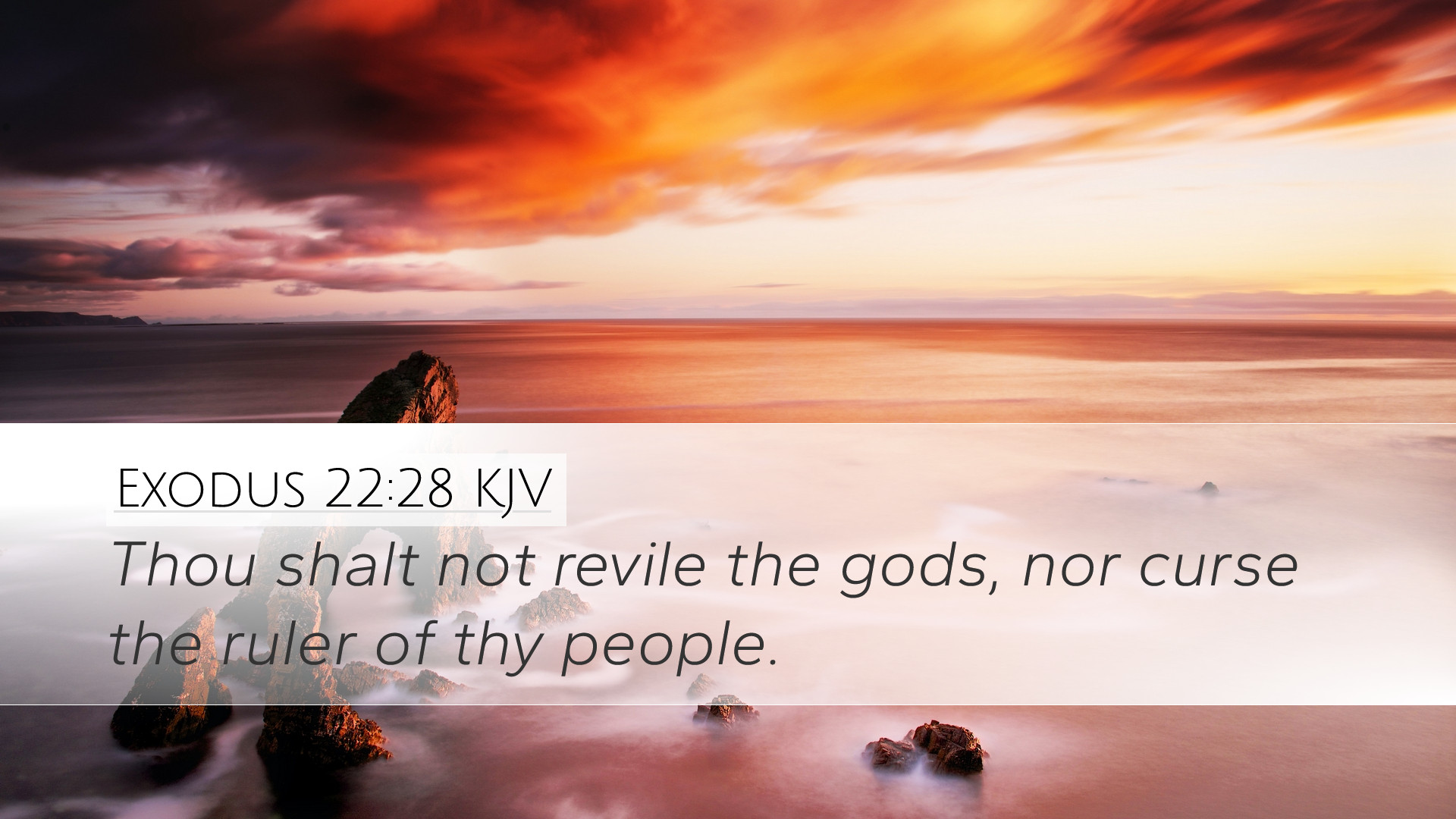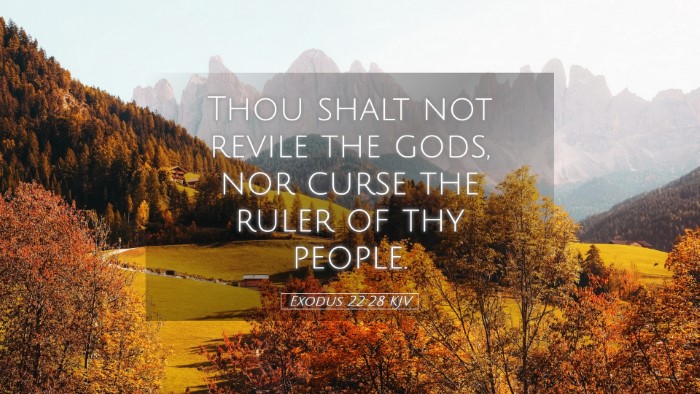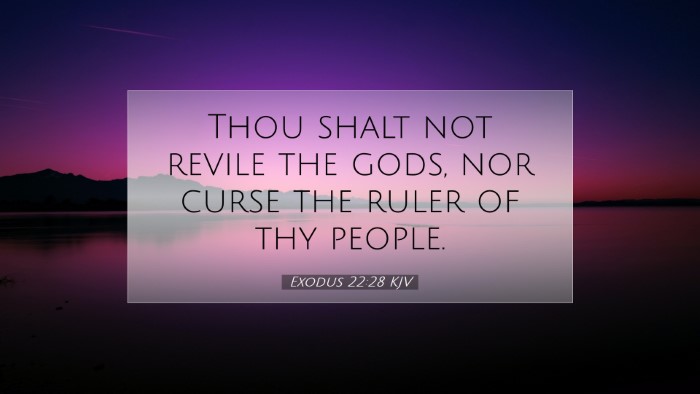Commentary on Exodus 22:28
Bible Verse: "Thou shalt not revile the gods, nor curse the ruler of thy people." (Exodus 22:28, KJV)
Introduction
The biblical verse Exodus 22:28 addresses two significant aspects of societal conduct: respect for divine authority and reverence for human leadership. This commentary synthesizes insights from classical public domain commentaries by Matthew Henry, Albert Barnes, and Adam Clarke, providing a thorough exploration of the verse's implications for pastors, students, theologians, and Bible scholars.
Contextual Framework
Exodus 22 forms part of the broader legal and ethical instructions given to the Israelites following their liberation from Egypt. These directives emphasized the need for holiness, righteousness, and social justice within the community of God's people. Understanding the context is crucial for interpreting this verse accurately.
Historical Background
The Israelites were entering a covenant relationship with God, and as such, they were bound to conduct themselves in ways that honored both divine and human authorities. The cultural milieu of the time included a variety of beliefs and practices that could lead to idolatry and a disrespectful attitude towards those in positions of power.
Exegesis of the Verse
1. Reverence for God
Matthew Henry emphasizes the importance of honoring God as the ultimate authority. The phrase "revile the gods" signifies a warning against blasphemy and disrespect towards the Divine. While Henry notes that the 'gods' could refer to false gods or idols, the primary focus is on maintaining a proper reverence for God’s sovereignty.
Albert Barnes expands on this by highlighting that any expression of contempt towards God or divine matters undermines the very foundation of faith and morality within the community. The instruction serves to uphold the integrity of the Israelite's relationship with the Lord, which is fundamental for their identity as His chosen people.
2. Respect for Leaders
Barnes also points out the second part of the verse, which addresses the respect owed to rulers and those in authority. This admonition reinforces the notion that God appoints leaders for specific purposes. Disrespecting authority can lead to societal chaos and dissolution of order, as leaders are seen as God's appointed means for governance and justice.
Adam Clarke provides an extensive analysis of the term "curse." He suggests that cursing authorities not only shows a lack of respect but could also incite rebellion against the order God has established. Clarke notes that such actions can have severe consequences, both spiritually and socially, as they may lead to unrest within the community.
Theological Implications
1. Authority Under God
This verse exemplifies the theme that all authority is ultimately derived from God. Pastors and theological scholars can draw upon this principle to teach congregations about the respect due to secular authorities, as long as such respect does not contradict God's commands. The relationship between divine authority and human leadership shows the order God has instituted for societal functioning.
2. The Role of Speech in Community
The command against reviling and cursing highlights the power of words. Both Henry and Clarke advocate for the understanding that speech carries weight; it can build up or tear down. Emphasis is laid on the need for responsible communication within the community. This vital teaching can serve as a foundational principle in pastoral care and community relations.
3. Social Responsibility
Moreover, the exhortation to honor rulers can inspire followers of Christ to engage actively in their communities and governance. By participating lawfully and respectfully, believers can influence society positively. This perspective ties into the broader Christian concept of being 'salt and light' in the world, as highlighted in Matthew 5:13-16.
Practical Applications
- For Pastors: Incorporate teachings on authority and respect into sermons, emphasizing the biblical foundation for honoring both God and those in governance.
- For Students: Engage in discussions around the nature of authority in biblical times versus modern interpretations, considering cultural shifts and challenges to authority.
- For Theologians: Explore the interplay between divine sovereignty and human governance in contemporary theological debates, particularly in contexts of civil disobedience.
- For Bible Scholars: Analyze the historical context of Exodus 22:28 in relation to other ancient legal codes, such as the Code of Hammurabi, to understand the uniqueness of Israelite law.
Conclusion
Exodus 22:28 provides essential insight into the principles of respect for both divine authority and human leaders. The synthesis of perspectives from Matthew Henry, Albert Barnes, and Adam Clarke enriches our understanding of this verse's implications for contemporary faith practice. As believers navigate their roles within both sacred and secular spheres, this verse serves as a powerful reminder of the importance of honoring God's established order and engaging responsibly in societal dynamics.


